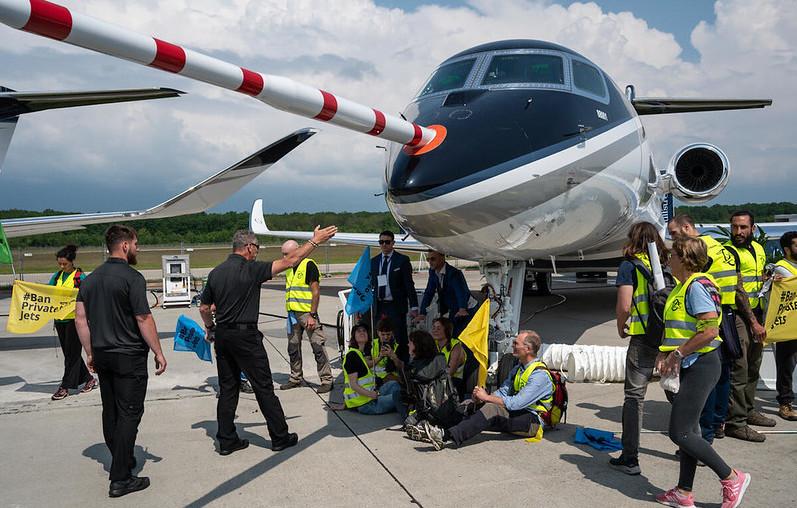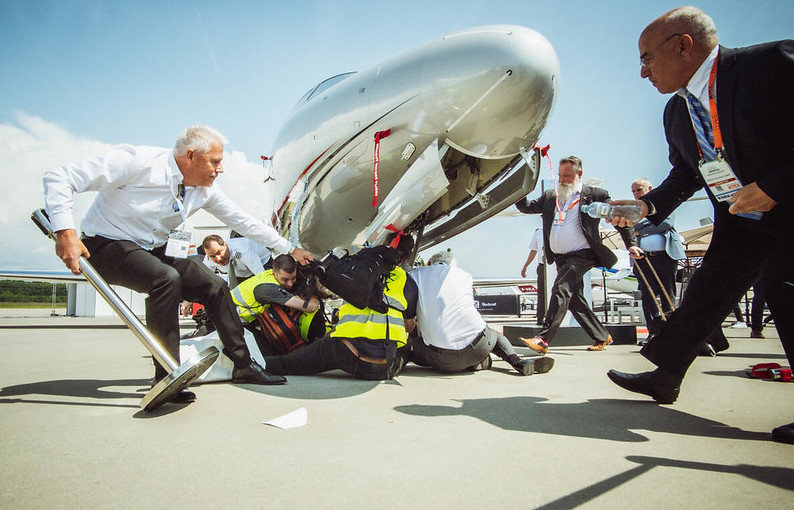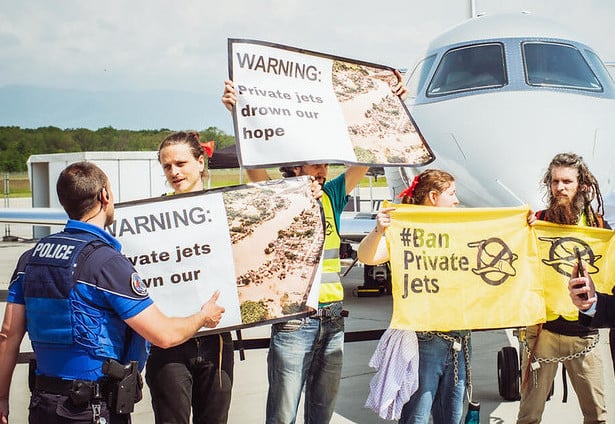
After bypassing security, some protestors congregate around the Gulfstream G800 which is on show at EBACE for the first time.
GENEVA—Dozens of activists defending the climate against business aviation, which they perceive as emitting a disproportionate amount of CO2, made it into EBACE’s static display at midday on May 23.
The demonstration disrupted both the first day of the exhibition and traffic at Geneva Airport, which hosts the static.
The protesters' success at EBACE may have short-term consequences. First, it will herald strengthened security checks, or at least a new approach to security, at future shows. Second, the industry may have to reassess the way it presents its sustainability efforts.
Protestors unfurled large banners, with messages such as “private jets are burning our future,” to make their point. Representing various associations, from Greenpeace to Stay Grounded, Extinction Rebellion and Scientists Rebellion, they sat in front of several business jets, including the Gulfstream G800, and attached themselves to some aircraft.

The static display was locked down after the security breach. Traffic at the airport was temporarily suspended and at least one flight was diverted to Zurich. The protestors were removed by police and private security, which allowed the static display to reopen.
“This is a completely unacceptable form of protest,” NBAA President and CEO Ed Bolen and EBAA Chairman Juergen Wiese said in a joint statement. “We condemn the action, and the threat it has posed to ... safety and security.”
The demonstration blocked the static display but stayed away from the taxiways and runways, Joel Perret, a spokesperson with Extinction Rebellion Geneva, told Aviation Week’s ShowNews.

“Flying in a business jet burns 10 times more fuel per passenger-kilometer compared to flying commercially,” Perret said. “And 50 times more than traveling by train. Business aviation is the most harmful means of transportation for the climate and only the happy few can afford it. Passengers consume their annual CO2 budget in just a few hours. We are asking for business aircraft to be banned.”
Even though aviation accounts for 2-3% of global CO2 emissions and business aviation is itself only a small fraction of that, those numbers are unacceptable, Perret said.
When asked about agriculture’s much greater emissions, “agriculture is essential,” he said. “Agriculture has to transform and stop using fossil fuels but we need food, whereas we do not need flying—especially alone in an aircraft.”
EBAA and NBAA argue that the industry has cut its carbon emissions by 40% per aircraft over the past 40 years, is continually reducing emissions today and is collectively focused on achieving net-zero emissions by 2050.
“Those [sustainable aviation] technologies will not be implemented in a reasonable time frame,” Perret said. “As for new fuels, such as biofuels and hydrogen, producing them in a sustainable way consumes a lot of renewable energy and resources, which are limited.”

Comments